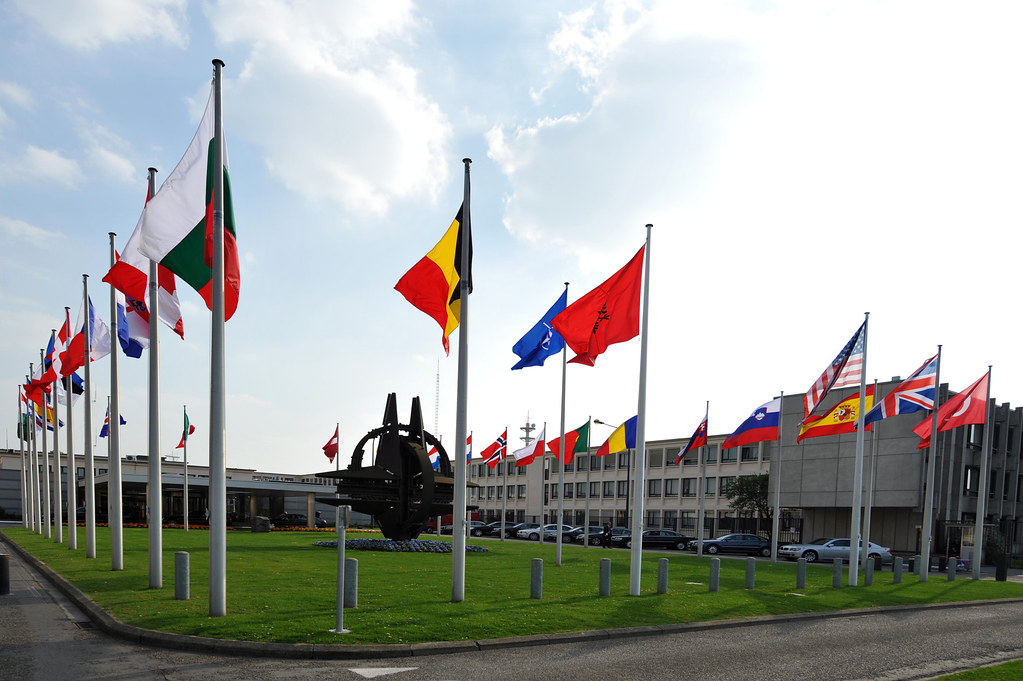In the world of international diplomacy and military alliances, timing can be crucial. Turkey, a pivotal NATO member, has decided to take a measured approach to ratifying Sweden’s bid to join NATO. This move comes as it anticipates indications of U.S. support for its own aspiration to acquire F-16 fighter jets. While this strategy may leave some NATO allies disappointed, it underscores Turkey’s careful navigation of its international commitments and strategic interests.
The Promise and the Wait
During a NATO summit in July, President Tayyip Erdogan surprised many by pledging to present Sweden’s NATO membership bid to Turkey’s parliament for ratification when it reconvened in October. This seemed to signal Turkey’s support for Sweden’s NATO ambitions after earlier expressing concerns about Sweden’s alleged harboring of terrorists.
However, since the Turkish parliament resumed its sessions on October 1, the foreign affairs commission, responsible for debating the NATO bid, has been inundated with nearly 60 international agreements to review, excluding Sweden’s application, as official data reveals.
The Quest for Synchronization
Insiders familiar with the situation suggest that Ankara is keen to synchronize its actions with Washington. The State Department is anticipated to seek congressional approval for a $20-billion sale of F-16 fighter jets to Turkey, along with dozens of modernization kits. According to an official from Erdogan’s ruling AK Party, Turkey is taking a cautious approach because of the existing doubts regarding both the F-16s purchase and Sweden’s NATO membership. They are looking for a clear sign that the United States is also moving forward in tandem.
A second source in U.S.-Turkish discussions revealed that a preliminary proposal to move simultaneously in ratifying Sweden’s NATO bid and the F-16 purchase has been postponed.
Erdogan’s office has not provided a specific timeframe for the ratification of Sweden’s NATO membership or any details on U.S. talks.
A Delicate Balancing Act
The U.S. State Department has expressed its anticipation of Sweden joining NATO “in the near future,” with President Joe Biden supporting the F-16 sale in the interest of the alliance, the United States, and its relationship with Turkey.
Considering these developments, it seems that Turkey is in no rush to act on Sweden’s NATO membership. Recent events, including a bomb attack in Ankara on the day parliament resumed and the downing of a Turkish drone by the United States in northern Syria, have made Erdogan more cautious.
Addressing the drone incident near U.S. troops on October 5, Erdogan pointed out, “Isn’t Turkey a NATO ally of the U.S.? How can we explain this? Only when it suits them, they call themselves partners.”
The Swedish Standstill
Sweden and Finland applied for NATO membership last year, primarily in response to Russia’s invasion of Ukraine. While Finland’s membership was confirmed in April, marking a historic expansion of the Western defense alliance, Sweden’s application remains in limbo, primarily due to objections from Turkey and Hungary.
Turkey asserts that Sweden needs to take more measures domestically to combat the militant Kurdistan Workers Party (PKK), which is also designated a terrorist group by the European Union and the United States.
After a meeting with NATO counterparts in Brussels, Turkish Defense Minister Yasar Guler stated that Sweden is expected to implement new counter-terrorism measures. He added that parliament would have the final say on the ratification of Sweden’s NATO membership.
Swedish Prime Minister Ulf Kristersson expressed optimism that the NATO membership process would be resolved “reasonably soon.” He cited Sweden’s fulfillment of all commitments in an agreement signed with Ankara and Helsinki last year.
Leveraging for Gains
Erdogan has indicated his willingness to use the situation to his advantage. He recently suggested a potential exchange: Sweden’s ratification for the U.S. approval to upgrade Turkey’s F-16 fleet.
In the broader context of NATO’s expansion, senior U.S. and Turkish officials had outlined a plan in which Erdogan would forward the NATO proposal to parliament, and the U.S. State Department would request leaders of the U.S. Senate and House foreign affairs committees to review the F-16 deal. However, hopes for swift approval were diminished when the PKK claimed responsibility for the bomb attack near government buildings in Ankara on October 1.
In response, Turkey escalated its strikes on militant targets in Iraq and Syria, which led to the drone incident near U.S. allied Kurdish fighters.
While the White House supports the sale of Lockheed Martin Corp F-16s, there are concerns in Congress regarding Turkey’s role in delaying NATO enlargement and its human rights record.
Furthermore, last week, a strain in U.S.-Turkish relations emerged due to Israel’s military actions against the Palestinian militant group Hamas. Erdogan, long supportive of the Palestinians and a two-state solution, criticized the presence of a U.S. aircraft carrier in the eastern Mediterranean, implying its intention to commit “serious massacres” in the Gaza Strip.











